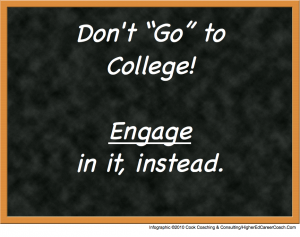“Hello, I am Karol, and I am a photography enthusiast…” says me.
“Hello, Karol!” says the rest of the PA (Photography-oholics Anonymous) support group.
Oh yes, it is addictive. Trust me. However, I don’t think it’s an addiction you should by trying to get rid of. Because photography can be a great hobby for life.
Build a physical representation of your memories
You just can’t disagree with this. There’s no better way of documenting your memories than by having a massive directory of photos.
That’s why I started photography in the first place—I just wanted to continue the family tradition. My grandfather started it. He bought the first camera in the family. Then my father followed. Then it was my turn. What’s the result? I have a number of photo albums that have been put together during a 30+ year span.
Here’s an experiment. Try asking someone what they would have saved as the first thing from their house had it been on fire. Any idea what the answer will be?
Boost your creative mind
Shooting conscious photos puts your creative mind to work like nothing else. By “conscious photos” I mean the photos you shoot while thinking about the whole process: situations when you try to find the perfect frame, get the lightning and the angle right, set the best aperture, choose the right lens, and so on. By doing all of this, you’re exercising your brain and forcing it to come up with a result that is a “decent photo” by your personal standards.
Everyone needs to be a little creative every once in a while. It keeps your mind fresh and full of ideas. And if you’re in a business that’s more creative-thinking oriented (like web design, freelance writing, etc.) then doing something creative as a hobby is a must.
Have a great hobby
I’m not a professional photographer. I probably never will be. I don’t really care when someone says that my photos are no good. I’m not doing this for anyone other than myself. For me it’s a hobby, albeit a very important one.
How would you define a hobby? My definition is: something I consider relaxation when doing it. Shooting some photos is a great way to relax and detach yourself from everyday problems and challenges. There’s just you, the camera, and whatever you want to photograph. Nothing else matters.
Besides, photography as a hobby has many sub-hobbies in it. For example, take a look at some of the things I’ve been doing so far: creative self portraits, tilt-shift photography, nature, food, and HDR (not yet shared). If you want more ideas, I encourage you to search the groups on flickr—there’s a group for almost anything.
Easily gain knowledge
If you want to learn some new things and improve your skills, there’re countless places you can visit. For example, Digital Photography School is a good place to start. Those Flickr groups are great too. To be frank, the amount of free information online greatly exceeds what an ordinary human can digest.
And the best thing is you don’t really have to know much to be able to shoot a decent photo. (By decent I mean one that’s better than what 99% of people are uploading to Facebook.) Of course, if you want to go pro it’s going to require a lot of work and dedication, but that’s a whole different story and I’m sure you’re aware of that.
Enjoy countless online communities
Nowadays, if you’re a photography enthusiast you’re not alone. Try:
- Flickr
- Picasa
- Dailybooth
- Deviantart
- Ning
- Google groups
- Photography forums and message boards.
All of these places enable you to share your work with the world, get feedback, improve, and eventually take your skills to the next level.
One thing to remember is that photographers (even the amateur ones) are usually highly creative and interesting people. The kind of people you want to be friends with. Nowadays you can use your hobby as a way to meet like-minded people. Just join an existing community and see what’s going on (or start a new one and become a leader yourself).
Benefit from the low cost of entry
You really don’t need much stuff to be an amateur photographer. Not even a DSLR (to all pros out there: please don’t hate me for saying this). A simple point-and-shoot camera is fine for a complete beginner, which means you can start your adventure for less than $200. Compare it to, for example, kite surfing, which would cost you anything above $1500 just to get the basic equipment.
“OK, I’m hooked. Where do I start?”
- Choose an online community to join (my pick? Flickr).
- Get a camera.
- Check out Digital Photography Tips for Beginners (also remember to subscribe to their newsletter—it’s free).
- Learn theory and practice a lot. Submit your photos to Flickr and post it to Flickr groups.
- Improve.
- Repeat steps #3 to #5.
…and most importantly, enjoy it.
I love photography because it documents my memories, boosts my everyday creativity, provides a great and relaxing hobby, the knowledge is easily accessible, there are massive online communities for amateur (and professional) photographers, and it’s not expensive (at least at a hobby level).
What about you? What do you love about photography? And what’s your favorite sub-hobby in photography?
Karol K. (@carlosinho) is a 20-something year old web 2.0 entrepreneur from Poland who shares his thoughts at newInternetOrder.com. Tune in to get hisGetting Things Done (GTD) tips and other personal productivity advice. And don’t forget to connect with him on Flickr.













Recent Comments